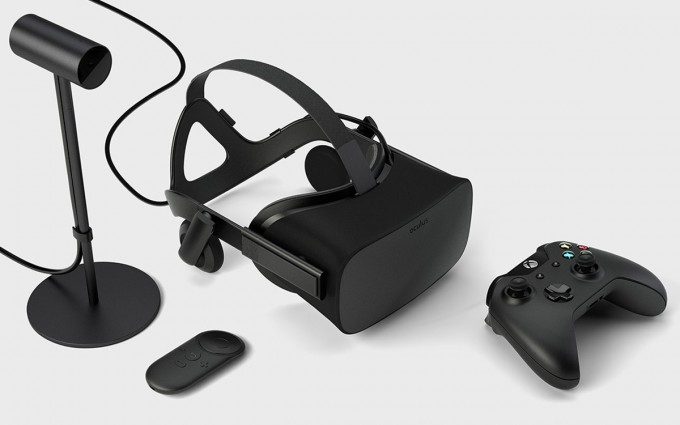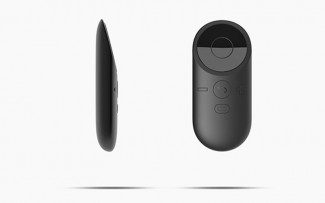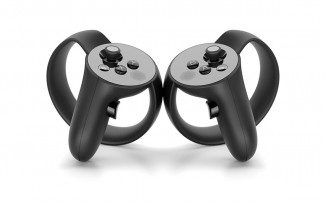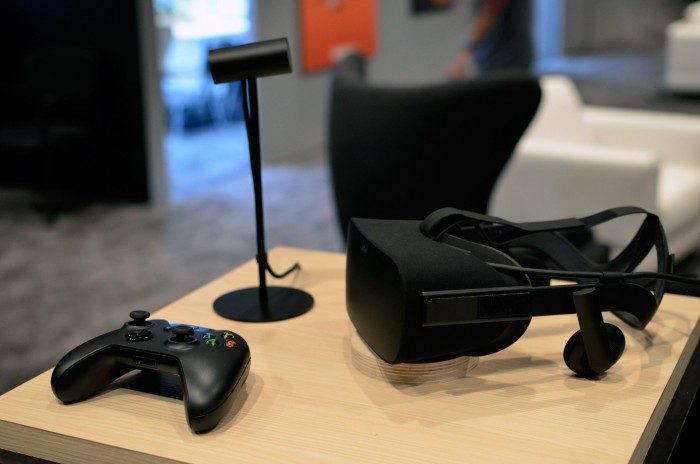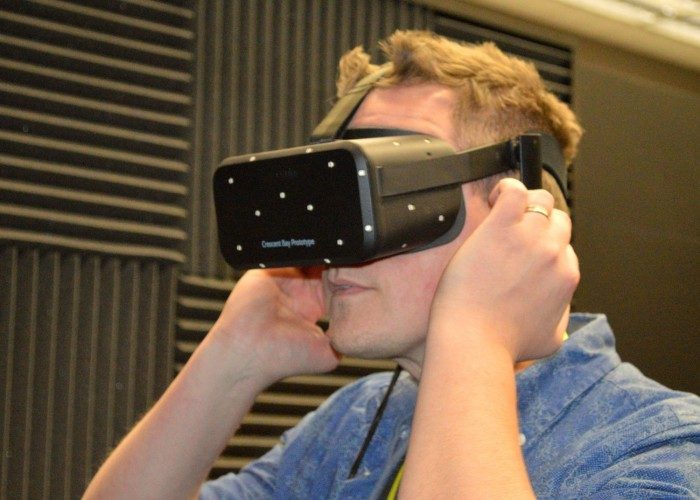Palmer Luckey, Oculus’ founder and inventor of the company’s iconic first VR headset, answered number of questions from the Reddit community in last night’s AMA (ask me anything), even admitting in a comprehensive question that his $350 ballpark figure on Rift pricing leading up to pre-orders ‘was handled poorly’.
Luckey answered a large bullet-point mega-question last night, culminating in an avalanche of answers regarding the Rift’s pricing, the newly revealed Oculus Remote, Oculus Touch and much more. Because Luckey managed to address many questions in the thread, we’ve condensed it down to show only new info.
Q: The price is what it is – I understand bleeding edge electronics is expensive. My question is: Why was the messaging about price so poor? $599 is not in the ballpark of $350 when your target audience is the mainstream.
Luckey: I handled the messaging poorly. Earlier last year, we started officially messaging that the Rift+Recommended spec PC would cost roughly $1500. That was around the time we committed to the path of prioritizing quality over cost, trying to make the best VR headset possible with current technology. Many outlets picked the story up as “Rift will cost $1500!”, which was honestly a good thing – the vast majority of consumers (and even gamers!) don’t have a PC anywhere close to the rec. spec, and many people were confused enough to think the Rift was a standalone device. For that vast majority of people, $1500 is the all-in cost of owning Rift. The biggest portion of their cost is the PC, not the Rift itself.
For gamers that already have high end GPUs, the equation is obviously different. In a September interview, during the Oculus Connect developer conference, I made the infamous “roughly in that $350 ballpark, but it will cost more than that” quote. As an explanation, not an excuse: during that time, many outlets were repeating the “Rift is $1500!” line, and I was frustrated by how many people thought that was the price of the headset itself. My answer was ill-prepared, and mentally, I was contrasting $349 with $1500, not our internal estimate that hovered close to $599 – that is why I said it was in roughly the same ballpark. Later on, I tried to get across that the Rift would cost more than many expected, in the past two weeks particularly. There are a lot of reasons we did not do a better job of prepping people who already have high end GPUs, legal, financial, competitive, and otherwise, but to be perfectly honest, our biggest failing was assuming we had been clear enough about setting expectations. Another problem is that people looked at the much less advanced technology in DK2 for $350 and assumed the consumer Rift would cost a similar amount, an assumption that myself (and Oculus) did not do a good job of fixing. I apologize.
To be perfectly clear, we don’t make money on the Rift. The Xbox controller costs us almost nothing to bundle, and people can easily resell it for profit. A lot of people wish we would sell a bundle without “useless extras” like high-end audio, a carrying case, the bundled games, etc, but those just don’t significantly impact the cost. The core technology in the Rift is the main driver – two built-for-VR OLED displays with very high refresh rate and pixel density, a very precise tracking system, mechanical adjustment systems that must be lightweight, durable, and precise, and cutting-edge optics that are more complex to manufacture than many high end DSLR lenses. It is expensive, but for the $599 you spend, you get a lot more than spending $599 on pretty much any other consumer electronics devices – phones that cost $599 cost a fraction of that to make, same with mid-range TVs that cost $599. There are a lot of mainstream devices in that price-range, so as you have said, our failing was in communication, not just price.
Q: What’s the rough cost breakdown that goes into the $600 cost of production? Roughly how many % of the price is the OLED, optics, audio, electronics, peripherals, and manufacturing?
And spoil the first tear down?! I wish I could share the detailed breakdown, but I cannot, for both internal and partner related reasons. I will use whatever credibility I have left to assure you that you are getting a pretty crazy deal.
Q: What are your plans in the future to make this product more affordable to the average person?
Continue working with GPU and CPU manufacturers to optimize for VR, thus reducing the required hardware cost. Use economies of scale and the passage of time to reduce the cost of good enough PC hardware. For the average person, the PC is by far the biggest cost, not the headset – the end goal is to make sure people can use the PC they already have in most cases.
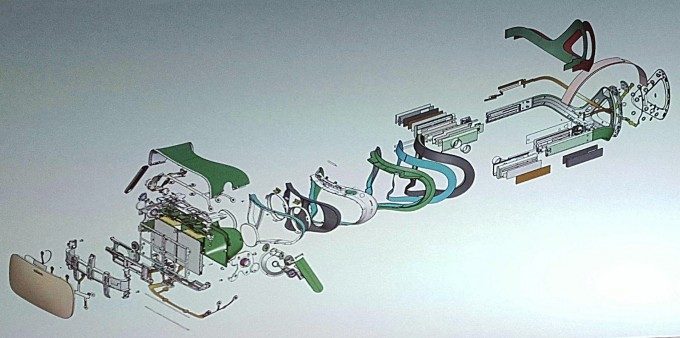
Q: Can we expect to ever see a cheaper, stripped down Rift SKU (-Xbox controller, -headphones, -games, etc)
Very unlikely for the first generation of Rift. A standardized system is in the best interest in developers trying to reach the widest audience, and we cannot significantly reduce the cost without dramatically reducing quality[…]
Q: John Carmack tweeted that he expects gaming to occupy less than 50% of the time we spend in the RIFT.. what kind of experiences is he eluding to. Oculus Medium? Toy box? How much is there to do in Toy Box?
Somewhat surprisingly, the majority of time spent right now in Gear VR is video and experiences, not games. Over time, VR span beyond games, much like the evolution of computer and mobile platforms before it. Right now, gaming is going to be the primary driver of PC VR, but the content base will expand over time.
See Also: Mark Zuckerberg on Oculus Toybox and Touch “The Craziest Oculus Experience”
Q: Palmer, the messaging you have been hammering out lately is “We’ll see you in the Rift”. How exactly will that happen?
Multiplayer and social experiences like EVE: Valkyrie, mostly! I can’t work all the time, gotta spend some time playing VR games myself.
Q: What accessories can we expect to see from Oculus for the Rift (replacement facial interface padding)
There are a range of accessories coming, and we’ll have a range of facial interfaces ourselves. Expect more news in the future.
Q: I want to know more about the small new remote. Can we play games with it? What was the decision behind it and what functionality can we expect from it?
We designed the Oculus Remote to be simple and intuitive input device for navigating VR experiences, especially when a fully-featured gamepad doesn’t make sense. An example is Oculus Video on Gear VR, which can be explored with just with gaze and tap. The remote is also ideal for non-gamers who want to try VR but aren’t familiar with a gamepad. It is also a good fit for apps that are ported across from Gear VR to Rift.
Q: In what ‘ballpark’ can we expect Touch’s price to be?
No more ballparks for now. I have learned my lesson.
See Also: Oculus Rift Priced at $599, Expected to Ship in March
Q: What details can you share about the Remote? Does it include a gyroscope/accelerometer? Will the Kickstarter backer shipments will be in the March window? Will they have the same place in line for Touch orders? Will Oculus be artificially restricting use with computers below the min spec?
No gyro. It is essentially the input set of GearVR made into a remote. You are technically able to replace the battery, but the included battery life should last for about 4,000 hours of use.
Kickstarter backer shipments will be shipping in March. They will indeed have the same place in line for Touch, along with the other pre-order bonuses.
We will not be artificially restricting use of computers. Not my style. Some apps will run on lower spec machines, especially things like movie apps, but we can’t officially support that, especially since many low end cards are physically unable to output the framerate and resolution required for the hardware to operate.
Q: Will Oculus offer a way to buy additional IR cameras?
Yes, both as part of Touch, and individually.
Q: Multiplayer experiences are obviously going to be a big thing when it comes to VR. What is Oculus doing to ensure its not the Wild West out their for connecting to other Oculus users? I’d really rather not have to sign up to a hundred different gaming portals each with its own unique friends list and differing network performance…
Our games services provide devs the ability to use your Oculus Name throughout all of the Oculus games and experiences.
Q: Will upgrading to Windows 10 be required for Rift? Will it provide a better experience for the Rift specifically? (compatibility, setup, etc)
We support Windows 7, Windows 8, and Windows 10.
Q: When CV1 is out, what happens to DK1 & DK2 compatibility? are they phased out immediately or will the SDK allow seemless support for them for games and experiences? is this all on the developers themselves? Will the introduction of Touch phase out DK2 completely when it comes to games with “Touch required”?
We want to make sure that developers with DK1 and DK2 can continue developing for Rift. We’ll have more news on DK1 and DK2 compatibility over the next few months.
Q: How Long will the Cables be from headset to PC, is it feasible to extend that length for room to vr experiences?
4 meters from PC to Rift headset, though use of extenders is often possible.
Q: Will Oculus offer extention cords and if not can you recommend a third party?
We will not be offering extension cords. No point in doing so when third parties like Amazon can sell for less than we can. Extensions will sometimes work, it depends on the PC and configuration, so no official support.
Q: Will the integrated DAC+amp be usable with third party headphones? e.g. through a 3.5mm jack on the headset. Or only with the shipped ones?
Not officially, and not without a little hardware hackery. Our DAC+amp are optimized for our specific driver modules, and are definitely not designed for high-impedance cans. The quality of our built-in audio stack is pretty great, if you really want something better, you are probably better pairing off with an external DAC.
See Also: Oculus Rift ‘Crescent Bay’ is Designed for Audiophiles – Here’s Why that’s Important for VR
Q: Recommended specs are 970/290.. anyone buying a RIFT will EXPECT to play all games at max settings and have the best experience possible.. is a 970 up for that challenge? will NVIDIA’s Pascal GPU’s be better suited for VR? What will YOU (@palmer) be running on your Rift set up?
You won’t necessarily be able to play all games at MAX settings on the recommended spec. You will be able to play everything in the Oculus store at a high quality level (90 FPS) on the recommended spec. Personally, I am going to be running the standard rec spec rig to make sure I get the same experience as most users.
See Also: AVADirect and Road to VR Launch Exemplar, The Benchmark PC for High-end VR
Q: What kind of prices can we expect Movies/Experiences to have in the Oculus Store? Most experiences in the Gear VR store have been free.
There will be the range of prices from free to higher priced AAA games. The pricing will be similar to what you see in console PC games.
Q: Will Oculus Cinema be able to play our 3D/2D Bluray movies off the disc or do we have to go through the whole rip/convert phase.
On Gear VR, Oculus Video has a paid video store that features full-length films from our content partners. It also supports sideloaded video playback. You can expect similar features to come to Rift over time.
Q: Will only apps downloaded from the Oculus store work or will we be able to use software that is downloaded outside the app store?
You’ll be able to do both. You can download Rift titles from our store or elsewhere and run them.
We’d like to give credit where credit is due, to the Redditors who asked these questions, but Luckey responded to a deleted post that was pasted over from a number of disparate subreddits too. We mean no offense in anonymizing the questions, and hope you understand why we did so.


